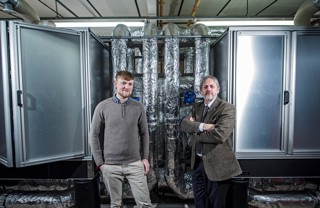Modern vehicles can emit twice as much pollution in the first five minutes of running, according to new research.
Analysis of the EQUA Index data shows that the average daily distance driven in urban areas is not sufficient for a vehicles pollution control system to warm up and function effectively.
Global Action Plan is calling on drivers to ditch their cars on Clean Air Day (June 21), in favour of walking or cycling shorter trips.
More than half of car trips nationally are less than five miles. In urban areas such as inner London, a third of car trips are less than two miles
The combination of the pollution burst that is being created as cars warm up in the first five minutes of journeys, together with the large proportion of journeys being short ones, is making a significant contribution to the UK’s air pollution challenge.
Drivers are suffering the worst effects of this pollution burst as there can be up to double the amount of pollution inside vehicles.
Larissa Lockwood, head of health at Global Action Plan, the organisers of Clean Air Day, said: “Taking collective action to tackle air pollution every day can make a massive difference, particularly if we cut down on using the car for these short, polluting journeys, many of which can be walked or cycled instead.
“Imagine if more people left the car at home every day, particularly for these short journeys. We could achieve similar levels of clean air on a daily basis as we did when the roads closed during the London Marathon which led a massive 89% drop in air pollution. We would suffer far fewer health problems from air pollution and we would also reduce levels of congestion and free up our streets, making them safer.
“Let’s take action together on Clean Air Day, 21 June, to make a real difference to the air we breathe. Clean Air Day has developed a range of advice, top tips, and information on the actions that everyone can take to protect themselves from pollution and reduce their impact.”




















john4870 - 11/05/2018 16:05
This is not news. This is just someone at last waking up to what most of us have known for years.